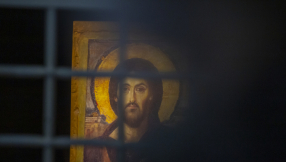Hymnwriter Fred Kaan dies aged 80
Although his health had been failing for sometime, he was well enough to make a special appearance at the United Reformed Church General Assembly in 2008, where he took part in a public discussion with two other hymnwriters, Brian Wren and Alan Gaunt.
Born in the Netherlands, Kaan spent the war years under Nazi occupation, an experience which marked his life, with a deep concern for peace and justice. He began to attend church for the first time in his late teens and at 18 was confirmed.
He decided to study theology and psychology at Utrecht University. On a visit to England he stayed with a family belonging to a Congregational Church and was so impressed with Congregationalism that, when he decided to offer for the Christian ministry in 1952, he chose Western College.
After a first pastorate in Barry in 1963, he was called to Pilgrim Church in Plymouth. It was there that he began to be known for his hymn writing. With his wide experience, his strong convictions, and a gift for languages, he became the minister-secretary of the International Congregational Council after five years which united in the World Alliance of Reformed Churches.
In 1978 Fred returned to England to become the Moderator of the West Midlands Synod of the United Reformed Church. During this time he also served as an officer of the Council for World Mission, becoming its chairman. His final pastorate was in Swindon and he retired in 1990.
With his wife, Elly, Kaan had two sons, Martin and Peter, and a daughter, Alison. After Elly’s death, Fred married Anthea, who has cared for him devotedly in retirement and especially in the last few years.
The Rev Roberta Rominger, general secretary of the United Reformed Church said: "We thank God for the gift to us of Fred Kaan, whose passion for peace and justice, ecumenical drive and ability to enable the Church to sing the faith in plain but moving speech have had a major influence on the Church in the last half of the twentieth century."













